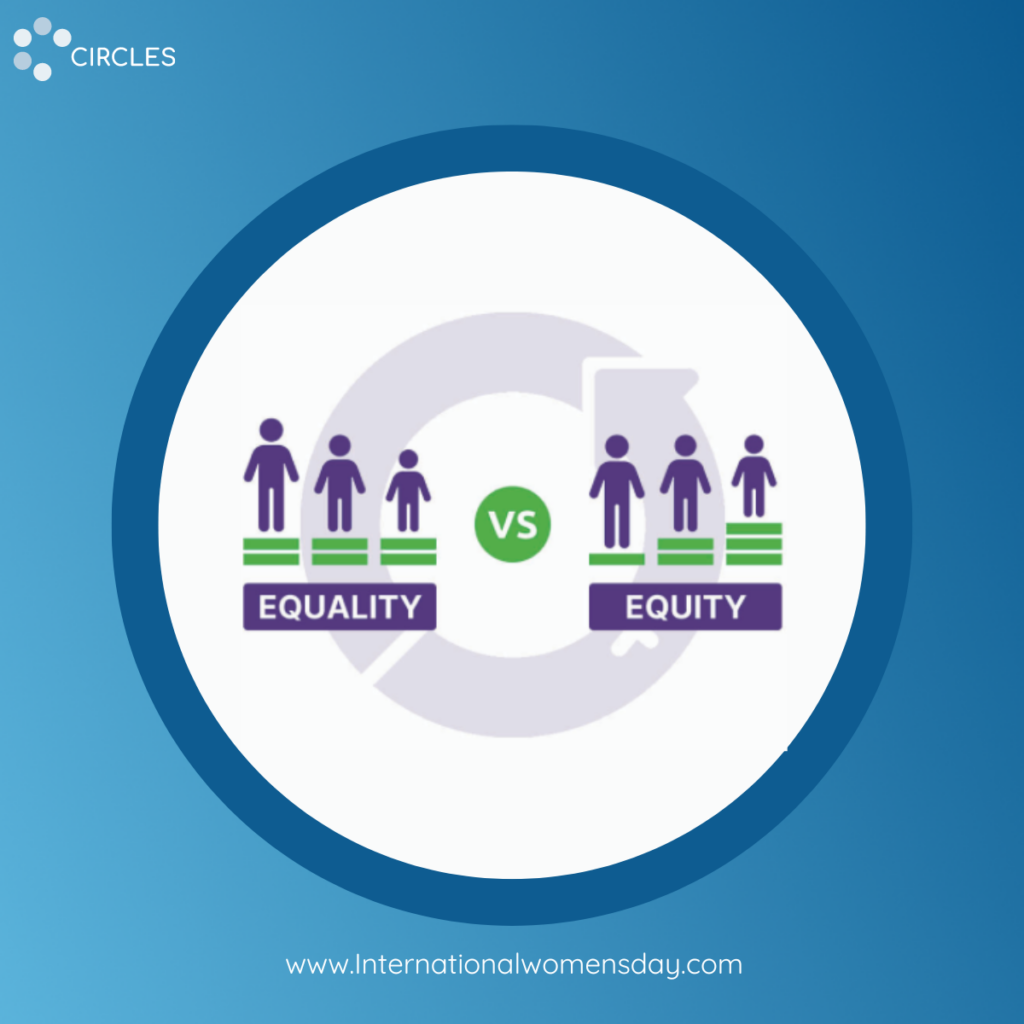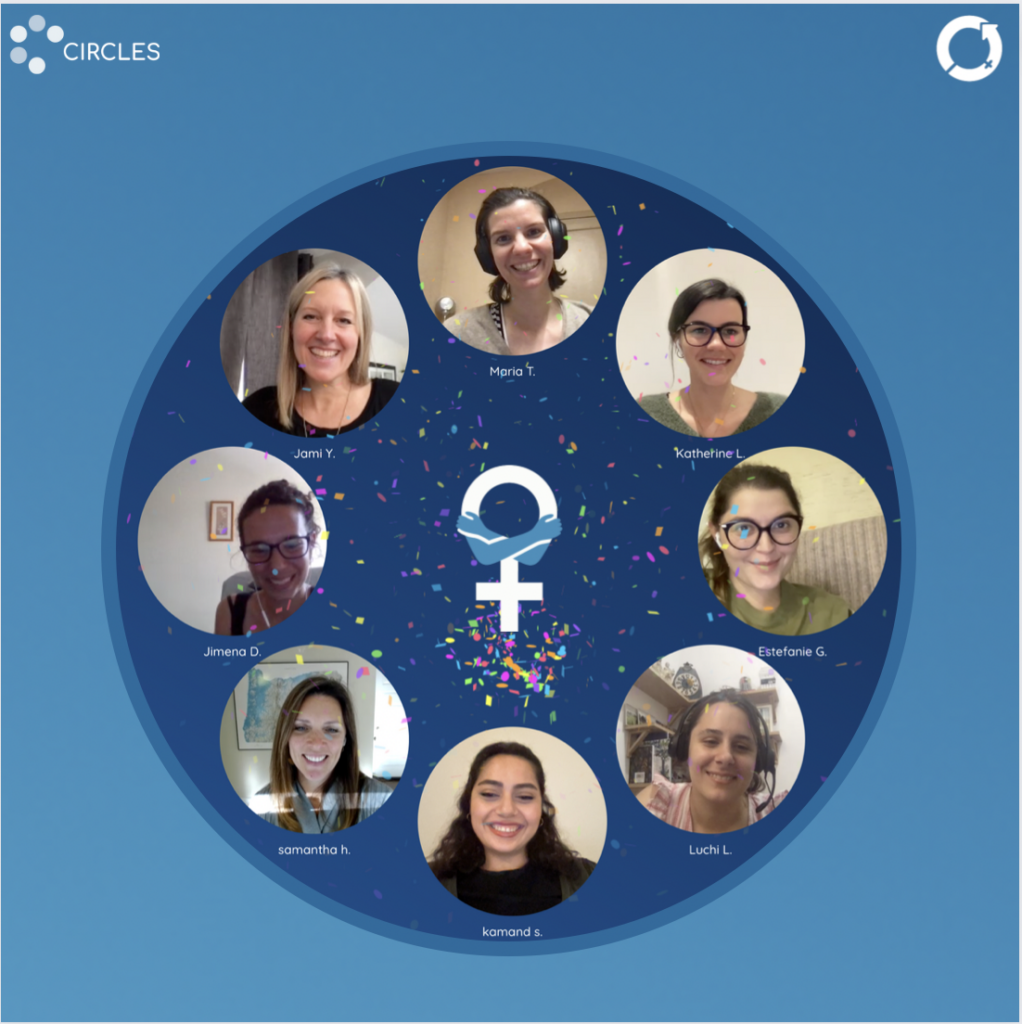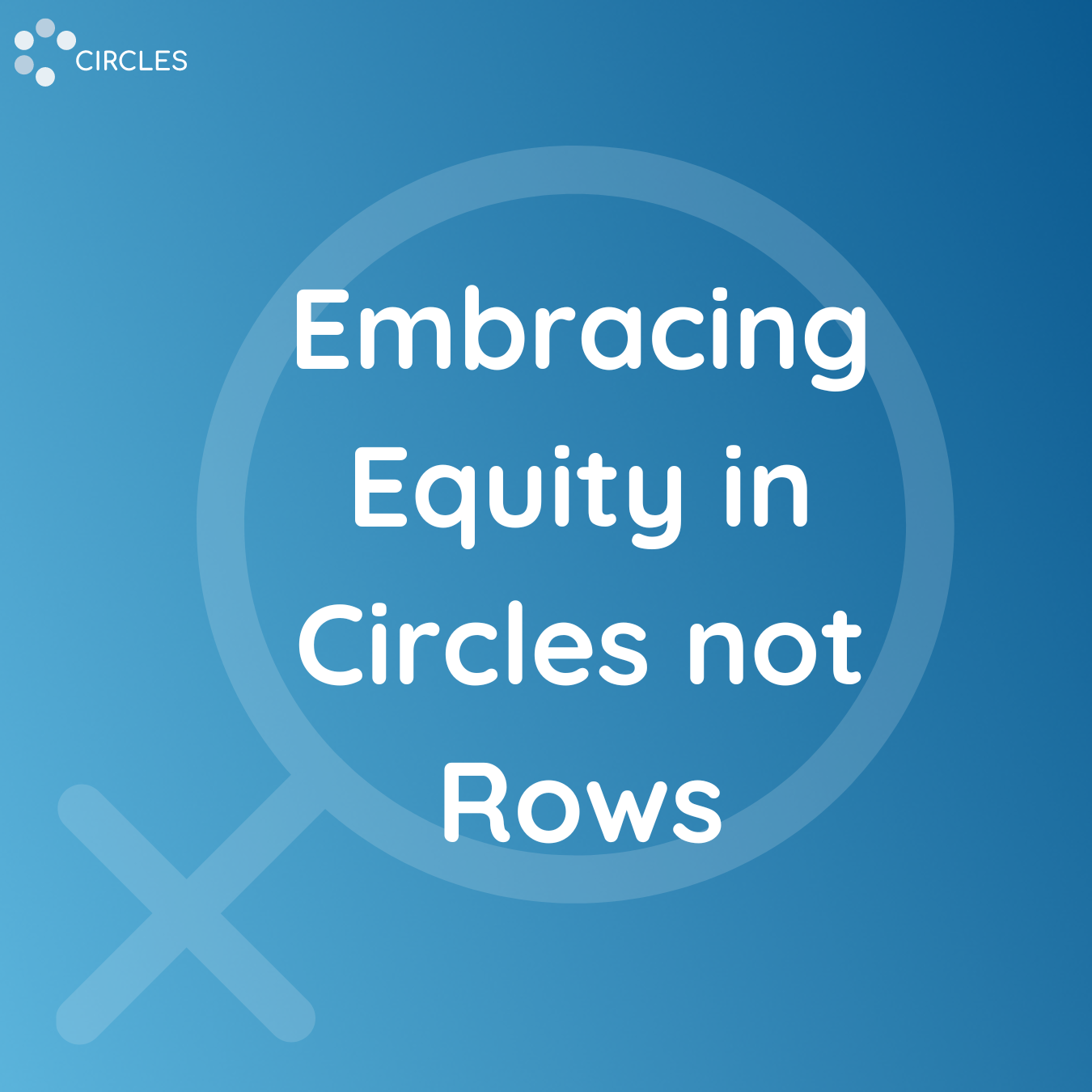
Women’s History Month celebrates generations of gender equality progress. While many have gone before and much has been accomplished, today’s International Women’s Day theme “Embrace Equity” recognizes a necessary focus on equity. The IWD Community explains embracing equity like this: “Equity-based solutions take into account the diverse lived experiences of individuals and communities, adapting services and policies according to these differences.”
Equitable solutions doesn’t mean leveling the playing field because women are somehow deficient–it simply addresses the fact that over the course of history, men have constructed systems with men in mind.
Traditionally, gender equality efforts in the workplace focused primarily on balance: working to ensure women are equally represented at every organizational level, and for equal pay. A good and valuable place to start, workplace gender equality remains a work in progress. At Circles, for instance, we celebrate the fact that just three years ago, our globally diverse Leadership team consisted of four men spanning four countries, until 2020 when I stepped into the circle as Head of Community Growth, becoming the first woman to sit in the Leadership Circle. Additionally, our Strategy Circle is 40% female. As we pursue gender equality at every level, we’re celebrating that overall, our company is now gender balanced.
A gender-balanced company doesn’t automatically make it equitable, however, and a recent IBM Study warns that the pipeline for women in leadership is anemic; at mid & senior leader levels, women in leadership are opting out. “Biases are still a barrier. To break them down, organizations need to mature their approach to gender parity and create structures and systems that work for women and men.”

It’s hard work to navigate high levels of leadership as one of the only women. It’s not sustainable. Additionally, specific industries like finance still struggle with gender equality, as evidenced by the continued work of companies like 2X Global (formerly GenderSmart), a partner who’s kept gender inequality in front of us for years.
Designed With Equity in Mind
At Circles, we are on a mission to create spaces that are the building-blocks of equitable and inclusive behaviors. Women in particular quickly recognize the value of gatherings where they’ll have a speaking turn, won’t be interrupted, and are guided by an intentional structure that facilitates safer dialogue.
Recently, I have had the privilege of gathering women in leadership into Circles to connect over the topic “inclusion in the workplace,” and they’re eager to discuss. Over 500 have journeyed through these sessions to date. In small groups of six-eight, we listen to and learn from each others’ experiences, discuss career highs and lows, and share best practices on belonging and inclusion efforts.

Over the course of many sessions, two themes have been validated: one, we are not a monolith. Ethnicity, religion, marital status, background and more makes us shine as individuals, and strengthens who we are together. Two: we bond over the breadth of what we carry in society civically, in the workplace, and in the relationships we manage in every sphere. The reality of our intersectionality plus the burden of our responsibilities magnifies the inequities of current corporate structures.
Another major theme is that we agree that we cannot continue carrying the emotional and tactical burdens of domestic and corporate life unseen; otherwise, we’re facing burnout. Burnout is more than a buzzword. Women in our circles use the word often, and research backs it up: “There’s a sizable (and growing) gender gap between women and men on the issue of burnout, with women 32% more likely to experience burnout compared with men.” Remakably, women may be bordering on burnout, but they carve out time for our sessions anyway. The need to be together outweighs the sacrifice of another precious calendar hour. Experts like Joanna Rees agree: “Every company today is trying to figure out how women can thrive in upper leadership. Women’s Leadership Circles are emerging as an essential piece of the answer.

When recent global events resurfaced societal injustice and marginalization, corporate inclusion efforts of all kinds abounded. Companies created and filled diversity, equity, inclusion and belonging positions. Inclusive leaders doubled down on forming and funding employee resource groups. Last year, the women of Circl.es formed our own She/Her Circle. It has been a highlight! An energizing and connecting way for us to learn with and from each other across functions and cultures, we cover topics like ‘fear setting,’ temperaments, women’s health and microfinancing.
I can’t ignore another major datapoint – When Chief recognized the C-suite gender gap and created an exclusive new space for female executives, membership skyrocketed. In fact, Chief struck a chord so powerfully that its membership exploded to 20,000 in four years. As this bottleneck demonstrates, women leaders want to join forces as they navigate and influence the corporate landscape together.
While Chief’s waiting list balloons, my hope is to democratize the exclusive experience they offer. Flourishing for everyone, not just women, is the ultimate impact: everyone benefits when women and other marginalized groups are platformed (we all know that diverse teams are smarter). Simply put, we are better together.
Stay tuned for news about our developing Women’s Leadership Circles program for organizations, coming soon!
Conclusion
When women gather together in guided circles over meaningful topics, they’re fueled to keep leading and paving the way for equity and equality, in the workplace and beyond, for future generations of women in leadership–their daughters, sisters, mothers and friends.
Sheryl Sandberg had the vision that “in the future, there will be no female leaders. There will just be leaders.” Until then, we press on to ensure equitable spaces for everyone.
This International Women’s Day, how will your organization prioritize women in leadership? At Circles, we’re on a mission to change the shape of things; in order to embrace equity, the spaces where we gather and work need changing. Register to experience one of our WIL one-off sessions today, or contact me to learn more about adding inclusive & equitable #circlesnotrows to programs for your organization.

